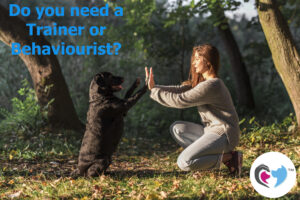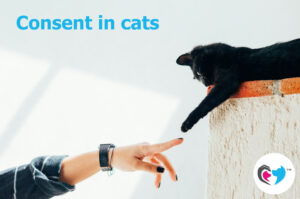Coping during lockdown and preparing for when you go back to work.
During this time of lockdown or self-isolation many of us have found ourselves at home, and perhaps spending more time with our pets than usual. While this is great fun for us now, it is important to remember that life is eventually going resume in a new normal way, and you going back to work could have emotionally devastating effects on dogs or cats who have now grown accustomed to your constant presence.
For people, this could mean long hours at work. For pets, it means once again adjusting to spending long hours on their own, without you. These changes are likely to upset your pet, so now is the perfect time to prepare your companion for the transition back to the reality of you not always being at home.
- Routine
Just like children, pets thrive on routine and knowing what to expect next. While you are home, stick to your usual pre-coronavirus routine as much as you can. Feed breakfast and dinner at the same times and stick to toilet and treat routines. If you have a dog who is used to being walked, use the same time of day you would usually walk her to get some exercise in the garden by either throwing a ball, running around, playing tug or playing in a digging pit.
- Give your pet some alone time
Though you may be available round the clock right now, it is prudent to still practice some “mom or dad is not available right now” alone time with your pet. This does not mean you need to leave the house! It simply means enabling your dog or cat to entertain themselves without your involvement for short periods of time throughout the day. For example, if you’re watching a show on Netflix, give your dog a chew toy and let him enjoy it in the sunshine on the lawn instead of on the couch next to you. Give your cat some food dispensing toys in a different room instead of letting her sleep on your lap the whole day, every day. By giving your companions short ‘alone time’ sessions, you can help them to cope better with being on their own (with toys of course) when you go back to work. Make it a house rule that no-one is to bother your dog or cat when she is sleeping in her bed.
- Don’t smother them with attention
Similar to point 2, lavishing copious amounts of attention on your pet when you’re together creates a big contrast effect when you are apart: it can be difficult for your pet to understand why life has gone from him getting lots of constant attention to none at all. Conversely, some pets are finding all the constant attention overwhelming. If your cat is used to sleeping for 8 hours in the day while you’re out at the office, your constant presence and desire to interact now can cause her a great deal of discomfort and can even result in depression or aggression from her. Balance is the key here – so strive to follow your old routine during this new routine when it comes to attention.
- Make leaving and arriving uneventful
For the few times that you do leave the house for essential goods, don’t make a big deal out of leaving and coming home again. If you say goodbye, do so without unnecessarily hyping your dog up. Keep your departures and arrivals nice and casual. When you come home, say hello calmly and briefly and then go make a cup of tea or pack away groceries – do not initiate a greeting ceremony akin to the arrival of the flame during the opening ceremony of the Olympics.
- Get your pet interested in toys
If you have some spare time now, use it to teach your dog or cat how to use food dispensing, chewing and play toys. Contrary to popular belief, dogs and cats do not automatically know how to use these items, and many require guidance to figure out what they’re supposed to do with the items you provide for them. Have a look here for some DIY toy ideas for your pets.
Start off easy and slowly progress in difficulty as your pet gets better at the toys. For instance, make large holes in treat dispensing toys so the treats fall out easily and your pet doesn’t get discouraged at first. As they get the hang of it, make the holes gradually smaller until it’s a real challenge for them.
Affection is healthy – after all, we all have companions because we really enjoy being with them! However, while spending this extra time together is wonderful, your pets (like you) need much more than just cuddles to be well rounded. Enable your pet to pursue interests other than just being with you; interests that give them physical and mental stimulation as well as teaching them to cope fine without you there. This will not make your dog love you less – it just means when you are out, she won’t be in distress and feeling like she’s been abandoned. Cultivating confidence and independence in your pet so that he can enjoy time away from you is a sign of a healthy relationship between guardian and pet, and will be a great advantage when things go back to the new normal.





